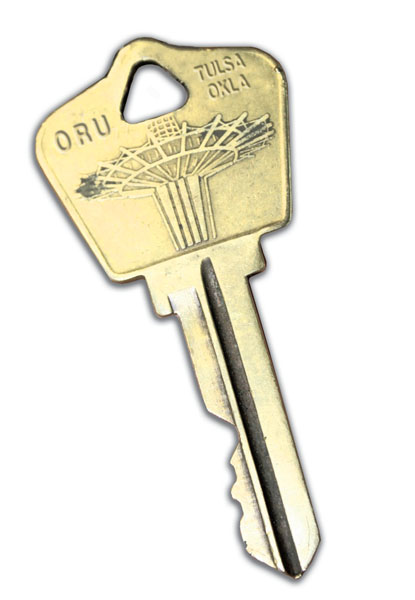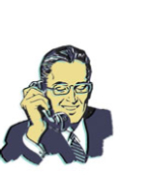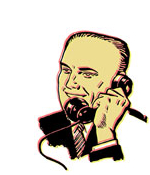In early 2008, businessman and philanthropist Mart Green took over as chair of the board at Oral Roberts University (ORU). Eighteen months later, Mark Rutland became president of the 3,700-student university in Tulsa, Oklahoma.
Green is a businessman — the owner of Mardel Christian and Education, a chain of 34 religious bookstores. He learned retailing from his father, David Green, who built the Hobby Lobby chain of arts and crafts stores. 
Rutland, on the other hand, is an evangelist and pastor who in 1999 was named president of Southeastern University of the Assemblies of God in Lakeland, Florida. He helped the school boost enrollment and pay down debt, and when the board of ORU hired him in 2009, they expected him to do the same in Tulsa.
When Green started as chair, he began spending one day a week on ORU's campus, which is a hundred miles from his base in Oklahoma City. But once Rutland came on board, Green began to cut back. One day a week on campus was too much; one phone call a week was more like it, plus on-campus visits when necessary.
Earlier this year, I talked to Green and Rutland and asked them about the weekly calls.
What do you discuss on your weekly phone calls?
Board Chair Mart Green:
One of the first two or three goals that I wrote down back in February 2008 was for a culture of trust to be built at ORU. So that's the key each week.
Dr. Rutland's still learning me; I'm still learning him. I'm learning my role — when to step forward, when to step back. So I've given him the freedom to tell me. I hope we're building trust between us.
The second goal we had was institutional reality. I said, "Don't tell me what I want to hear; tell me what I need to hear. If we're $5 million in the hole, tell me $5 million, don't tell me $2.5 million." So, I'm assuming that each week, as things happen on the campus that are major issues — or things that might become major issues down the line — the president's telling me.
And then our third goal was achieving our mission with economic sustainability. Those issues come up at different times. For example, Dr. Rutland might tell me about his visit to the West Coast — he went out to meet some donors. So I'll ask, "How did it go? Did you have some interest there?"
You know, we have some alumni who have felt that the university didn't do right in certain areas, so we're going back to them and saying, "We know you got hurt, but we love you. And by the way, ORU's still a great university." This goes back to rebuilding trust.
What's the agenda for the phone calls?
President Mark Rutland:
In any of those calls, either of us may or may not have some kind of an agenda. We don't call it that — we just say a "list." Mart says, "I've got three things on my list." And I say, "OK, I've got two things on my list."
Sometimes those are just informational questions about — say — a dashboard issue. "We're running behind on deposits; do you have an explanation for that? What does it mean?" So sometimes the questions are strictly informational.
On the other hand, Mart may say, "Here's a guy I met when I was at a Bible society meeting, and I think this is somebody you might want to reach out to." Or I may say, "We're working on trying to reach into a certain community here. Do you know anybody there? Contacts that can help us in development?"
We don't have to have the answers in that meeting. I can say to him, "I don't know, I'll call you back." That seems to be OK with him, as far as I can tell.
I don't think of those calls as straight-out business meetings. They're sort of "check in, check up, catch up."
Mr. Green, how long are you going to stay on as board chair?
We're taking it year by year. I'm appointed for a year each year.
My role is changing from being focused on economic sustainability and vitality to being focused on mission. Of course, we've talked about mission along the way. But the role of the board chair will change, and some of my strengths and gifts may not be as strong in that area.
I'm not begging to be the chair. At the same time, when I leave, I want ORU to have its best year the next year after that.
Dr. Rutland, what's it like to have Mart Green as your chair?
I think that the question that everybody asks in their minds — and maybe nobody wants to ask it directly — is "What does it feel like to have your principal philanthropist as the chairman of the board?" I feel like that's a question that everybody wonders about in educational circles.
This was the thing I was the most concerned about, and it has turned out to be virtually nonexistent as a problem. In fact, in my view, Mart bends over backwards in trying to make it clear that "I'm not running this." There are times when he's almost extravagant in his willingness to be voted down or argued down. That has proven not to be a concern — not because it isn't a dangerous situation, but because of who he is.
So one of those things where people say, "Has this worked?" And I would say "It has worked well, but ‘children, do not attempt this at home.'" It all depends on who that chairman is. I don't know that I'd want to try it with T. Boone Pickens. [Laughter.]
Mr. Green, you run two businesses. I'm sure you're used to saying, "This is what we're going to do," and people do it. But at the university, there are people who can say, "No, I don't want to do that." And they have tenure, so you can't fire them.
It's different in some degree, but in other ways, even at Mardel — the business that I started and run — I've always had a very collaborative approach. 
I know I carry the weight. If I say, "We have to go this way," we go that way. There's no shared governance in business. But I feel like you get the best game out of people when they feel like they're part of a decision.
The way I built my business is not a shared governance model, but it has some similarities. For example, I may say, "OK, you're in the buying department. I really respect you. I expect you to have the answer."
One of our sayings is, "I don't like to pay and worry." I'm paying you so that I don't have to worry! If I'm both paying you and worrying, forget it. I'll just do it myself.
My dad always said, "I give you lots of rope, and you can run with it or you can put it around your neck and hang yourself." I give people lots of rope. You can abuse that rope if you want to, but we're going to verify, too. That's how you get the best out of a team, I feel. Or that's the style that's worked for me.
The fifth and final article in a series about the turnaround at Oral Roberts University. The complete series is available at www.intrust.org/oru.